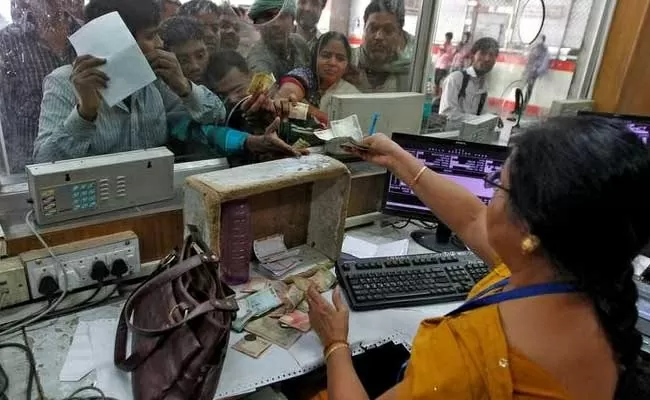Rule to Remember: Depositing and withdrawing money from a bank is a common practice. Every day a large number of people visit the bank for this purpose. Every bank has its own rules in this regard.
However, there are some rules which are applicable to all banks and ignoring them knowingly or unknowingly can cost you heavily. Today we are going to tell you about one such rule, if you fail to follow it, you may have to pay a huge tax.
It is necessary to provide information
If you deposit cash above a certain amount in the bank, you will have to disclose its source. Otherwise, you may have to pay up to 60% income tax. This includes 25% surcharge and 4% cess. The Income Tax Department has the right to issue notices against those who fail to disclose their source of income and collect 60% tax.
What does the rule say?
According to the Income Tax Act, if a savings account holder deposits more than Rs 10 lakh in cash in a financial year, he will have to disclose the source of this amount. That is, he will have to tell where he got this money from. Whereas, in the case of a current account, this limit is Rs 50 lakh. If you deposit cash more than this limit and are unable to tell its source, then you will have to pay up to 60 percent income tax.
there is some such arrangement
If you deposit Rs 50,000 or more in cash in the bank, you have to provide your PAN number. Overall, you can deposit a maximum of Rs 10 lakh in cash in your account in a financial year, no matter how many accounts you have. If you deposit more cash than this, the bank has to inform the Income Tax Department. After this, you have to tell the source of this income. Failure to provide satisfactory details can lead to an investigation by the Income Tax Department and tax can be recovered from you.
What is its purpose?
Let us now understand what is the purpose of this entire exercise. Actually, the government is emphasizing on the use of minimum cash. By setting the limit of cash deposit, the government wants to stop money laundering, tax evasion and illegal economic financial activities. The Income Tax Department looks at such a large amount from the perspective of money laundering or tax evasion, whose source is not known. Therefore, if you are depositing more money than the prescribed limit in the bank, then be careful about this rule.
Latest News:-
LIC launched a special scheme for children, this is how you will get the benefit
New Vande Bharat: Delhi-Srinagar Vande Bharat will run from this day, know fare to timing
School Holiday- Holiday declared in this district tomorrow, DC issues notification













